This article was medically reviewed by Janice Litza, MD and by wikiHow staff writer, Jessica Gibson. Dr. Litza is a board certified Family Medicine Physician in Wisconsin. She is a practicing Physician and taught as a Clinical Professor for 13 years, after receiving her MD from the University of Wisconsin-Madison School of Medicine and Public Health in 1998.
There are 17 references cited in this article, which can be found at the bottom of the page.
wikiHow marks an article as reader-approved once it receives enough positive feedback. In this case, 100% of readers who voted found the article helpful, earning it our reader-approved status.
This article has been viewed 91,568 times.
Studies show that in addition to filtering waste from your body, your kidneys also regulate your blood pressure, protect your bones, and keep minerals and fluids balanced in your body, among other things.[1] Unfortunately, one in three Americans is at risk for chronic kidney disease.[2] This disease most often develops as a consequence of another condition (like diabetes or heart disease) and develops over the course of several months or years. Experts note that there are a few things you can do to reduce your risk for this damaging kidney disease, including diet and lifestyle changes.[3]
Steps
Improving Your Diet
-
1Reduce your sodium intake. Watch how much sodium you eat and limit it to 2,300 mg of sodium a day. This is equal to about one teaspoon of salt. If you eat too much sodium, fluid can build up in your body causing swelling and shortness of breath. Try seasoning with herbs or spices instead of salt. Cut back on foods that are high in sodium. These include:[4]
- Sauces
- Salted snacks
- Cured foods and lunch meats
- Canned and convenience foods
-
2Cut back on sugars. Studies have shown that sugar plays a large role in contributing to obesity and diabetes, both of which can lead to chronic kidney disease. To reduce your sugar intake, read food labels since many foods contain sugar even if they aren't considered to be sweet treats. For example, condiments, breakfast cereals, and white breads are all high in sugar.[5]
- Remember to cut back on sodas since these contain high amounts of sugar. They also have kidney-damaging phosphorus additives and offer no nutritional value.
- Note that added sugar comes in many forms — in fact, there are at least 61 different names for sugar you might find on an ingredients list. These include sucrose, high-fructose corn syrup, barley malt, dextrose, maltose, rice syrup, glucose, cane juice, and more.[6]
Advertisement -
3Prepare your own food. When you make your own meals, you can choose whole grains, fruits, and vegetables that are minimally processed. Packaged foods that are processed are high in sodium and phosphorus additives which are bad for your kidneys. Often, those with Chronic Kidney Disease will be put on diets to lower phosphate though you shouldn't attempt this without the advice of your doctor. However, you should try to eat 5 servings of fruits and vegetables a day.[7]
- In general, visualize a serving size of fruits or vegetables by looking at the size of your palm. One portion is about the amount of food you could hold in the palm of your hand.
-
4Avoid protein from saturated fats. Researchers are still studying the relationship between high-protein diets and chronic kidney disease. While you shouldn't avoid proteins, or even fats, you should reduce the amount of red meat, full-fat dairy and saturated fats that you eat to only a few times a week. If you develop kidney disease, your kidneys will work harder to break down the waste from eating and digesting meat.[8] [9] Foods high in saturated fats include:[10]
- Processed meats: deli meat, sausages, cured meats
- Butter, ghee, lard
- Cream
- Hard cheeses
- Coconut or palm oils
-
5Eat unsaturated fats. You shouldn't completely avoid fats. Unsaturated fats, such as monounsaturated fatty acids and polyunsaturated fatty acids (which includes healthy Omeg-3 fatty acids), can reduce your cholesterol. Lowering your cholesterol can reduce your risk for heart disease which can cause kidney disease. To include unsaturated fats in your diet, eat:[11]
- Oily fish: salmon, mackerel, sardines
- Avocados
- Nuts and seeds
- Oils: sunflower, rapeseed, olive
Making Lifestyle Changes
-
1Exercise. Being overweight or obese can increase your risk for chronic kidney disease. You should exercise to help you lose weight and lower your blood pressure, both of which will reduce your chances of developing kidney disease. Try to get at least 150 minutes of moderate exercise every week.[12] [13]
- Studies have shown that obese people are twice as likely to develop chronic kidney disease. If your Body Mass Index is over 30, you're considered to be obese.[14]
- Moderate exercises include walking, cycling, and swimming.
-
2Avoid tobacco. You might think that smoking damages the lungs the most, but it can cause heart disease. Heart disease, strokes, and heart attacks will make your kidneys work harder and can cause kidney disease. Fortunately, stopping smoking can slow the development of kidney disease.[15]
- If you're addicted to smoking, talk with your doctor about smoking cessation therapies. Your doctor might recommend nicotine patches or therapy.[16]
-
3Limit alcohol. When you drink alcohol, your blood pressure and cholesterol levels rise. These can contribute to high blood pressure which can cause chronic kidney disease. Although you don't have to stop drinking alcohol completely, you should limit yourself to 1 drink a day (if you're a woman) or 2 drinks a day (if you're a man under 65).[17] [18]
- 1 drink is equal to: 12 ounces of beer, 5 ounces of wine, or 1.5 ounces of distilled spirits (liquor).
-
4Get regular checkups. Since kidney disease is difficult to detect until the disease has advanced, you should see your doctor for regular checkups. If you're healthy, aren't predisposed for a disease, aren't overweight and are under 30, you should see your doctor every 2 or 3 years. If you're healthy and between 30 and 40, see your doctor every other year. You can start getting annual checkups when you're 50, as long as you remain healthy.[19]
- If you've already been diagnosed with another chronic disease like high blood pressure, diabetes, or heart disease, it's important to work with your doctor to manage the disease since these can cause chronic kidney disease.
-
5Use medications for pain correctly. Analgesics and nonsteroidal anti-inflammatory drugs can damage your kidneys if you take a high dose for an extended period of time. Taking a high dose for a short period of time can temporarily reduce kidney function. Follow the manufacturer's dosing instructions if you take aspirin, acetaminophen, ibuprofen, ketoprofen or naproxen sodium.[20] [21]
- Ibuprofen, aspirin, and naproxen are in a similar class of drugs, so taking a combination of these drugs at the same time can cause kidney problems.
- Acetaminophen products (such as Tylenol) are filtered through the liver, not the kidney, so it’s preferred for people with kidney problems (so long as they have a healthy liver).
- Always tell your doctor what medications you're taking since some pain relievers — even over-the-counter drugs — can interfere with other medications.
Recognizing Kidney Disease and Getting Treatment
-
1Watch for symptoms of chronic kidney disease. You might not notice symptoms right away since chronic kidney disease takes time to develop. Pay attention for:[22]
- Increased or decreased frequency of urination
- Fatigue
- Nausea
- Itching and dry skin anywhere on the body
- Obvious blood in the urine or dark, foamy urine
- Muscle cramps and muscle twitches
- Puffiness or swelling around the eyes, feet and/or ankles
- Confusion
- Difficulty breathing, concentrating, or sleeping
-
2Think about your risk factors. While preventing kidney disease should be important for everyone, it's especially important if you're predisposed to developing the disease. Your risk factor is higher if you have a history of high blood pressure, diabetes, or heart disease. African Americans, Hispanics, and Native Americans also have higher risk of kidney disease. People over the age of 60 are also at an increased risk for kidney disease.[23]
- If you have a family history of kidney disease, you may be at risk for some kidney diseases that have a genetic component.
-
3Get medical attention. Because many symptoms of chronic kidney disease are similar to symptoms caused by other diseases, it's important to get checked out by your doctor if you notice any symptoms. Your doctor can test your urine and blood for kidney function. With that information she then diagnose kidney disease or determine if another condition is causing your symptoms.
- Talk with your doctor about your family history, any medications you're taking, and any concerns you have about your kidney health.
-
4Follow the treatment plan. If your doctor diagnoses you with chronic kidney disease, you'll be treated for the condition that's causing it. For example, if a bacterial infection is causing your symptoms, you'll get antibiotics. But, since kidney disease is chronic, your doctor may only be able to treat complications.
- If your kidney disease is severe, you may be put on kidney dialysis or get a kidney transplant.[24]
- Your doctor might prescribe medications to deal with complications. Specifically, you might need medications to treat high-blood pressure, treat anemia, lower your cholesterol, relieve swelling, and protect your bones.
Expert Q&A
-
QuestionWhat is the best thing to drink for your kidneys?
 Claudia Carberry, RD, MSClaudia Carberry is a Registered Dietitian specializing in kidney transplants and counseling patients for weight loss at the University of Arkansas for Medical Sciences. She is a member of the Arkansas Academy of Nutrition and Dietetics. Claudia received her MS in Nutrition from the University of Tennessee Knoxville in 2010.
Claudia Carberry, RD, MSClaudia Carberry is a Registered Dietitian specializing in kidney transplants and counseling patients for weight loss at the University of Arkansas for Medical Sciences. She is a member of the Arkansas Academy of Nutrition and Dietetics. Claudia received her MS in Nutrition from the University of Tennessee Knoxville in 2010.
Master's Degree, Nutrition, University of Tennessee Knoxville Master's Degree, Nutrition, University of Tennessee KnoxvilleExpert AnswerWater! There is nothing better on Earth to drink than water. Avoid soda and drinks with lots of sugar, like juice.
Master's Degree, Nutrition, University of Tennessee KnoxvilleExpert AnswerWater! There is nothing better on Earth to drink than water. Avoid soda and drinks with lots of sugar, like juice. -
QuestionIs it healthy for my kidneys to take a multivitamin?
 Claudia Carberry, RD, MSClaudia Carberry is a Registered Dietitian specializing in kidney transplants and counseling patients for weight loss at the University of Arkansas for Medical Sciences. She is a member of the Arkansas Academy of Nutrition and Dietetics. Claudia received her MS in Nutrition from the University of Tennessee Knoxville in 2010.
Claudia Carberry, RD, MSClaudia Carberry is a Registered Dietitian specializing in kidney transplants and counseling patients for weight loss at the University of Arkansas for Medical Sciences. She is a member of the Arkansas Academy of Nutrition and Dietetics. Claudia received her MS in Nutrition from the University of Tennessee Knoxville in 2010.
Master's Degree, Nutrition, University of Tennessee Knoxville Master's Degree, Nutrition, University of Tennessee KnoxvilleExpert AnswerIf you do not have kidney issues, an over-the-counter multivitamin should be fine. If you have CKD, your doctor will prescribe you a renal multivitamin. Either way, talk to your doctor about anything you are taking!
Master's Degree, Nutrition, University of Tennessee KnoxvilleExpert AnswerIf you do not have kidney issues, an over-the-counter multivitamin should be fine. If you have CKD, your doctor will prescribe you a renal multivitamin. Either way, talk to your doctor about anything you are taking! -
QuestionWhat test does a doctor do to find you have chronic kidney disease stage 3?
 Danielle Jacks, MDDanielle Jacks, MD is a Surgical Resident at Ochsner Clinic Foundation in New Orleans, Louisiana. She has over six years of experience in general surgery. She received her MD from Oregon Health and Science University in 2016.
Danielle Jacks, MDDanielle Jacks, MD is a Surgical Resident at Ochsner Clinic Foundation in New Orleans, Louisiana. She has over six years of experience in general surgery. She received her MD from Oregon Health and Science University in 2016.
Surgical Resident Staging of chronic kidney disease is based off of your glomerular filtration rate (GFR), which is determined by a blood test. Your doctor will perform the tests described above to determine the level of your kidney disease.
Staging of chronic kidney disease is based off of your glomerular filtration rate (GFR), which is determined by a blood test. Your doctor will perform the tests described above to determine the level of your kidney disease.
References
- ↑ https://www.kidney.org/atoz/content/howkidneyswork
- ↑ https://www.kidney.org/news/newsroom/factsheets/FastFacts
- ↑ https://www.cdc.gov/kidneydisease/basics.html
- ↑ https://my.clevelandclinic.org/health/diseases/15096-kidney-disease-chronic-kidney-disease
- ↑ https://my.clevelandclinic.org/health/diseases/15096-kidney-disease-chronic-kidney-disease
- ↑ http://www.sugarscience.org/hidden-in-plain-sight/
- ↑ http://www.nhs.uk/livewell/5aday/pages/5adayhome.aspx
- ↑ https://nutritionfacts.org/2018/02/08/the-effect-of-animal-protein-on-the-kidneys/
- ↑ http://www.ncbi.nlm.nih.gov/pmc/articles/PMC1262767/
- ↑ http://www.nhs.uk/Conditions/Kidney-disease-chronic/Pages/Prevention.aspx
- ↑ http://www.nhs.uk/Conditions/Kidney-disease-chronic/Pages/Prevention.aspx
- ↑ http://www.nhs.uk/Conditions/Kidney-disease-chronic/Pages/Prevention.aspx
- ↑ http://www.kidneyfund.org/kidney-disease/chronic-kidney-disease-ckd/#how_can_i_prevent_ckd
- ↑ https://www.kidney.org/news/newsroom/nr/Right-Diet-May-Help-Prevent-KD
- ↑ http://www.aafp.org/afp/2004/1115/p1921.html
- ↑ http://www.aafp.org/afp/2004/1115/p1921.html
- ↑ https://health.clevelandclinic.org/how-alcohol-affects-your-kidney-health/
- ↑ http://www.nhs.uk/Conditions/Kidney-disease-chronic/Pages/Prevention.aspx
- ↑ https://www.dukemedicine.org/blog/should-you-get-annual-physical
- ↑ http://www.nhs.uk/Conditions/Kidney-disease-chronic/Pages/Prevention.aspx
- ↑ https://www.kidney.org/atoz/content/painmeds_analgesics
- ↑ https://www.kidney.org/news/ekidney/august14/10_Signs_You_May_Have_Kidney_Disease
- ↑ http://www.kidneyfund.org/prevention/are-you-at-risk/?referrer=https://www.wikihow.com/index.php?title=Know-if-You-Have-Kidney-Problems&new=1
- ↑ https://my.clevelandclinic.org/health/diseases/15096-kidney-disease-chronic-kidney-disease
About This Article
To prevent kidney disease, try to cut back on sugary and salty foods since too much of them can lead to kidney disease. One way you can avoid foods that have a lot of sugar or salt in them is to cook more of your meals at home, where you can focus on eating more whole grains, fruits, and vegetables. In addition to eating healthier, you can prevent kidney disease by exercising more, even if it's just taking a walk on your lunch break or riding your bike to the store instead of driving. Ideally, you should be exercising for 150 minutes a week, but you can gradually work up to that if you need to. Additionally, try to limit yourself to 1-2 alcoholic drinks a day since alcohol is linked to kidney disease. For tips from our Medical co-author, like how to recognize the symptoms of kidney disease, keep reading.
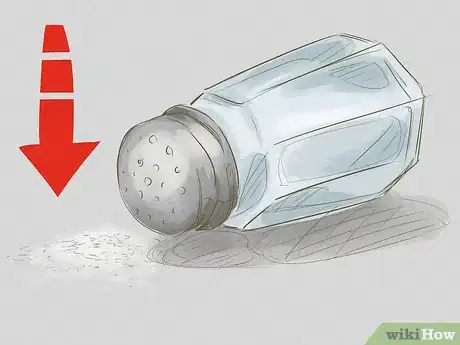
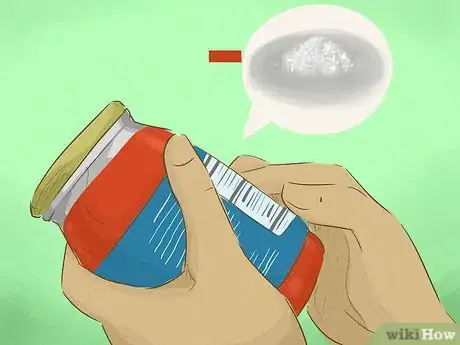
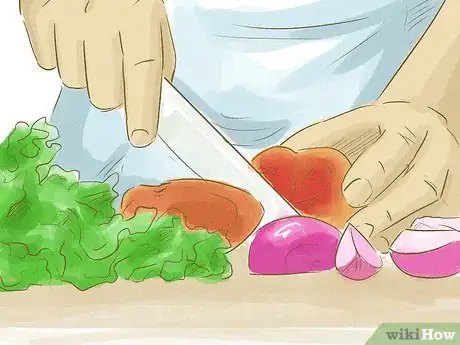

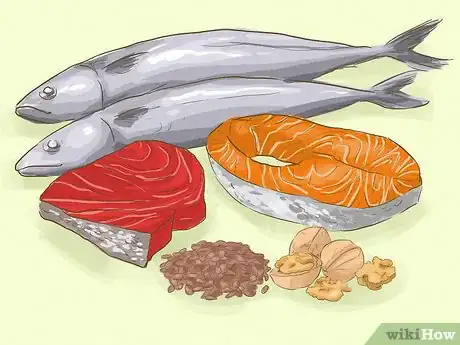


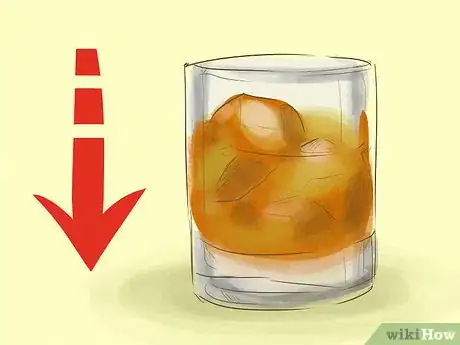

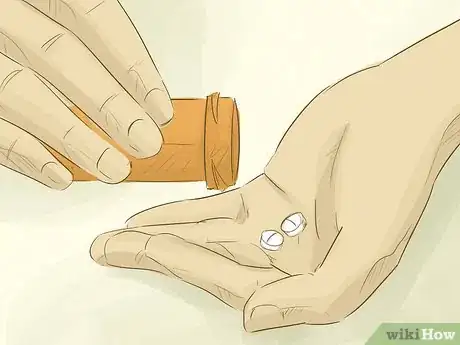


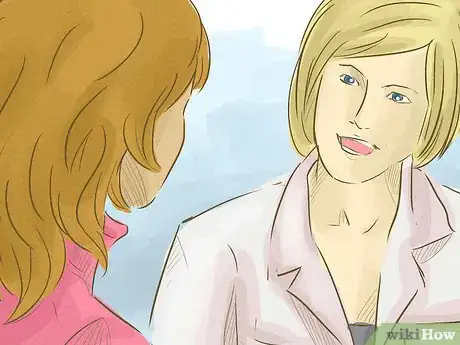
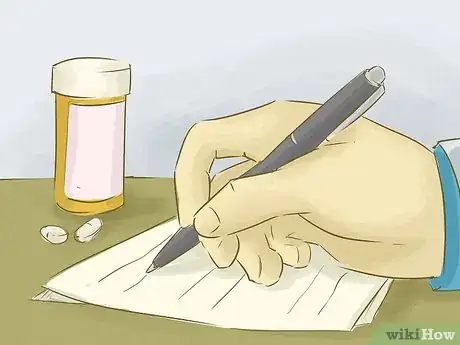
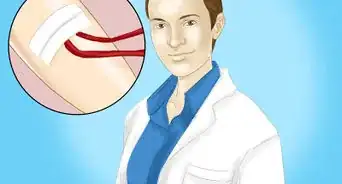
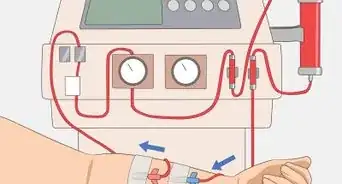

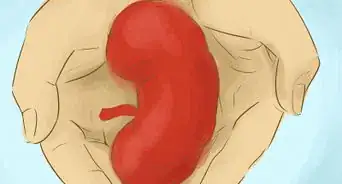


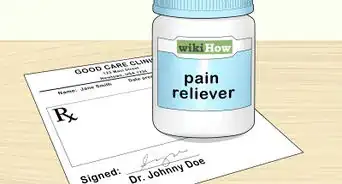
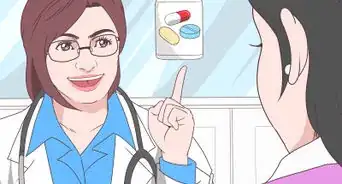



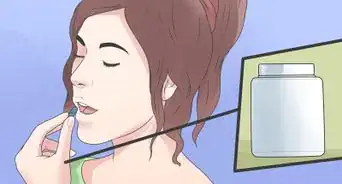
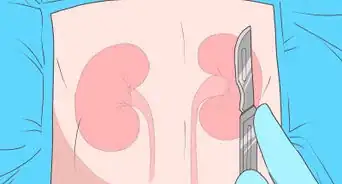











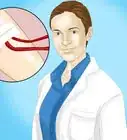
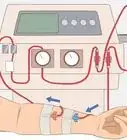

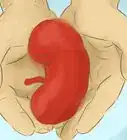



































Medical Disclaimer
The content of this article is not intended to be a substitute for professional medical advice, examination, diagnosis, or treatment. You should always contact your doctor or other qualified healthcare professional before starting, changing, or stopping any kind of health treatment.
Read More...